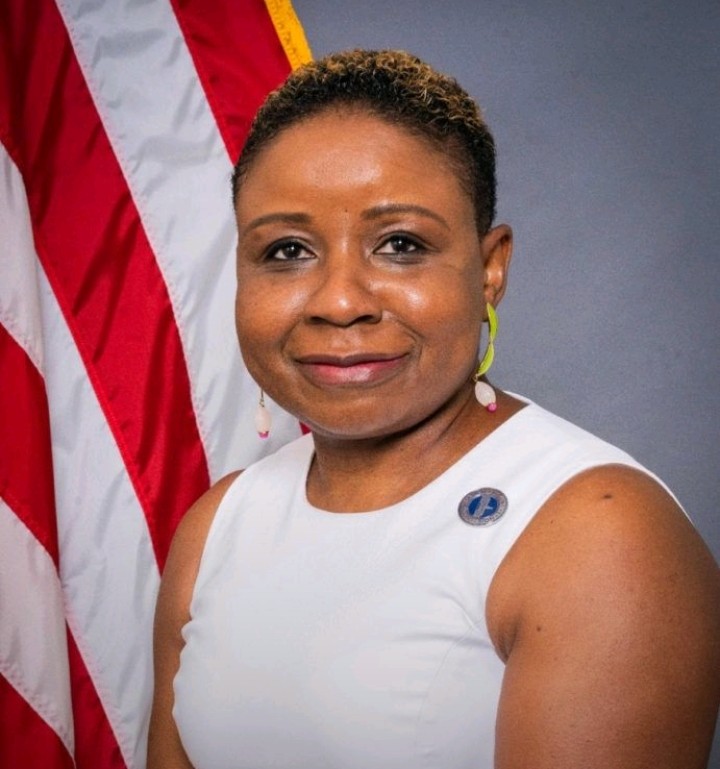Dr Helen Adesuwa Uzareme, a technology executive, founder and CEO of Project Rise, has accused Virgin Atlantic of humiliating her onboard an Upper Class flight to Lagos when a captain forcibly opened a lavatory door she had locked, allegedly as part of what she describes as a performance meant to entertain crew, not for any safety or protocol reason.
The incident, which she posted about on Facebook, after it had gone viral, garnering thousands of views on LinkedIn, and prompted a response from Virgin Atlantic’s executive office, who offered loyalty vouchers, a cash refund, and what they termed a “deadlock letter,” signifying a final stage of their internal investigation.
But Dr Uzareme says the airline’s responses have been transactional, lacking genuine apology or acknowledgment of wrongdoing. She is now escalating the matter to Aviation ADR, hoping for more than compensation: for dignity, accountability, and systemic change in how airlines treat passengers, especially Black women.
Who is the victim: Dr Helen Adesuwa Uzareme?
Dr Helen Uzareme is no ordinary traveler. She holds a doctorate in computing, complemented by multiple global certifications in project and technology management. As the founder and CEO of Project Rise, she works to empower women, particularly Black women, to “rise in spaces not built for us.”
Her professional portfolio includes leading global teams, coaching senior leaders, and advising Fortune companies. Yet, despite her credentials, her story reveals how even those with “elite status” can be subjected to indignities that many assume are left behind once they earn the seat.
In her post, Dr Uzareme writes:
“I carry more than luggage when I travel. I carry history. I carry brilliance. I carry the quiet hope I’ll arrive with my dignity intact.”
Her stature underscores the central tension of her story: that success, education, or status do not automatically shield someone from discrimination or humiliation in public, even at high altitudes.
The Incident in Detail: From Lounge Scrutiny to Lavatory Humiliation
Before boarding, according to Dr Uzareme’s account, at the Delta One lounge at JFK, she scanned in, was waved through, but then was pulled back and re-questioned about flight details. A system “had stopped working,” she says, even while other white women passed through without impediment. She recounts crying, not out of weakness, but exhaustion.
On the Air France segments of her travels, she reports frequent “random” searches“Almost every flight,” she says, leading both she and her daughter to vow “never again” to certain routes.
But the Virgin Atlantic Upper Class leg to Lagos delivered the most acute humiliation. After using the lavatory (less than two minutes inside, and after a crew member had opened the door for her), the captain emerged from the cockpit.
The crew lead, apparently intending to be amusing among colleagues, said half-jokingly: “I can get the occupant out.” He knocked, then forcibly opened the door despite Uzareme shouting, “I’m in here,” and rattling the latch. The captain, she says, then turned his back, laughing hysterically; the crew joined. When she whispered, “That wasn’t necessary,” the reply was: “The captain just had to go.” No apology followed.
Dr Uzareme says she returned to her seat humiliated and shaken, trying to hold herself together, and later found herself asking permission to use the restroom, “Me. A grown woman. Still shaken.”
The Response: Airline Offers vs. Expectation of Apology
Virgin Atlantic’s executive office responded with what, in Dr Uzareme’s words, were “offers” rather than expressions of regret. These included:
- £1,250 in loyalty vouchers
- US$977 cash refund
A so-called “deadlock letter”, indicating finality in their internal process and paving the way for escalation via Aviation ADR.
But for Dr Uzareme, the tone was more transactional than caring. She said the response felt like: “Go ahead. Nothing will come of it.”
She believes dignity should not be something earned or rewarded, it should be non-negotiable.
“Dignity shouldn’t be a reward for excellence. It should be the baseline for being human.”
A Call to Influential Voices: Turning Outrage into Action
For Dr. Helen Adesuwa Uzareme, the next step is not quiet resolution but collective advocacy. She has urged leaders, public figures, and social-justice organizations to transform the viral conversation into concrete change.
“Please share this for awareness. Tag a journalist, a leader, or someone with the power to make change. Let’s make sure this never happens to another passenger,” she wrote.
Activists and policy experts agree that high-profile interventions can accelerate accountability. According to the International Air Transport Association (IATA), sustained public pressure often drives carriers to update crew-conduct training and passenger-privacy policies faster than regulatory processes alone.
Civil-rights advocates such as the NAACP, Women in Aviation International, and the International Transport Workers’ Federation have previously influenced airlines to implement anti-bias programs after publicized incidents.
Travel-rights attorneys recommend coordinated campaigns, social-media amplification, petitions to aviation regulators, and direct appeals to Virgin Atlantic’s board and founder Sir Richard Branson.
A numbers of comment on Facebook showing disgusting nature of the incidence, one of which by Tonye Sipoto-Pepple read:
“Consider it done. Injustice to one, injustice to all. The profiling of all sorts by Airlines and their staff must stop “.
Dr. Uzareme’s appeal is clear:
“This isn’t a call-out. It’s a call-in, to your values, your leadership, and your legacy. I can’t believe Richard Branson would hear this story and remain unmoved.”
By rallying journalists, lawmakers, and equity advocates, she hopes the humiliation she experienced can become a catalyst for industry-wide reforms, ensuring that dignity in the skies is not a privilege but a right for every traveler.
Talking Point
The humiliation Dr. Helen Adesuwa Uzareme describes is more than a single lapse in customer service, it is a sharp reminder that when airlines allow bias or cavalier behavior to seep into crew conduct, they jeopardize both their commercial reputation and the broader global commitment to nondiscrimination.
In a hyper-competitive industry where loyalty hinges on trust and perception of safety, moments of public disrespect can cascade into viral outrage, prompting boycotts, regulatory scrutiny, and the loss of high-value customers who expect dignity as a baseline, not a privilege.
Beyond lost revenue, such incidents erode the universal right to be treated equally regardless of race, gender, or class, undermining international human-rights norms that many airlines publicly pledge to uphold. When an airline’s response feels transactional rather than accountable, it signals that financial restitution is valued above human dignity, amplifying public skepticism and weakening the credibility of corporate diversity commitments.
For carriers whose business depends on moving people across borders and cultures, failing to protect every passenger’s dignity is not merely a moral failure but a strategic one, threatening their license to operate in a world increasingly intolerant of discrimination.





